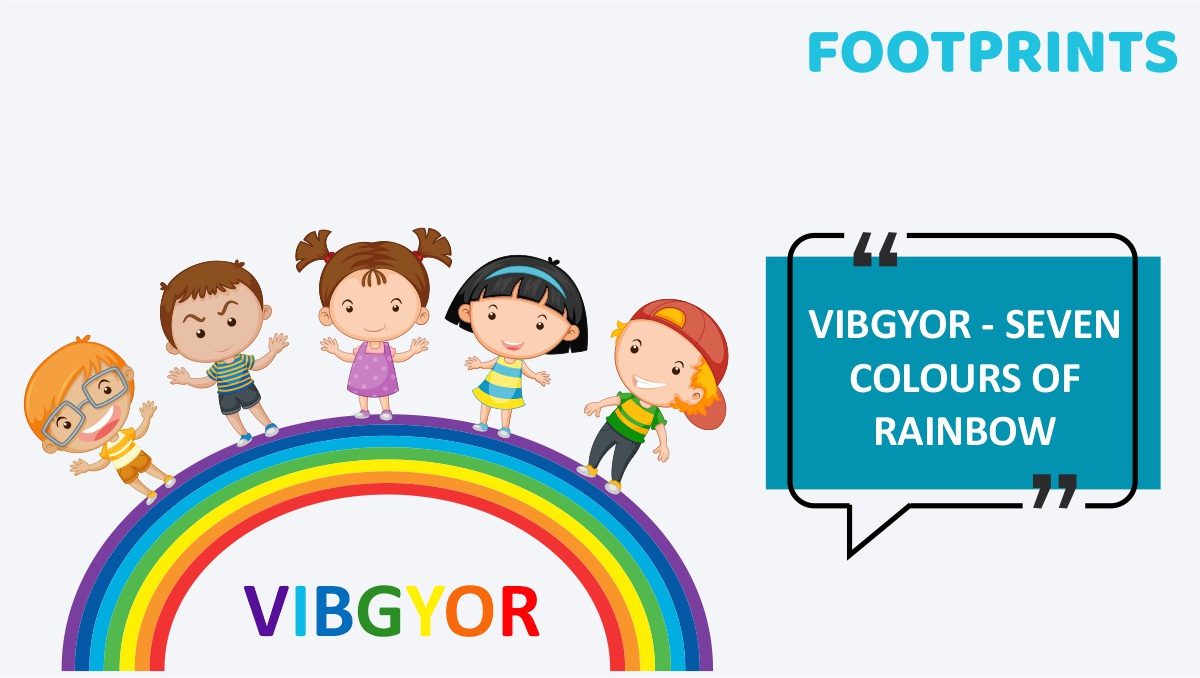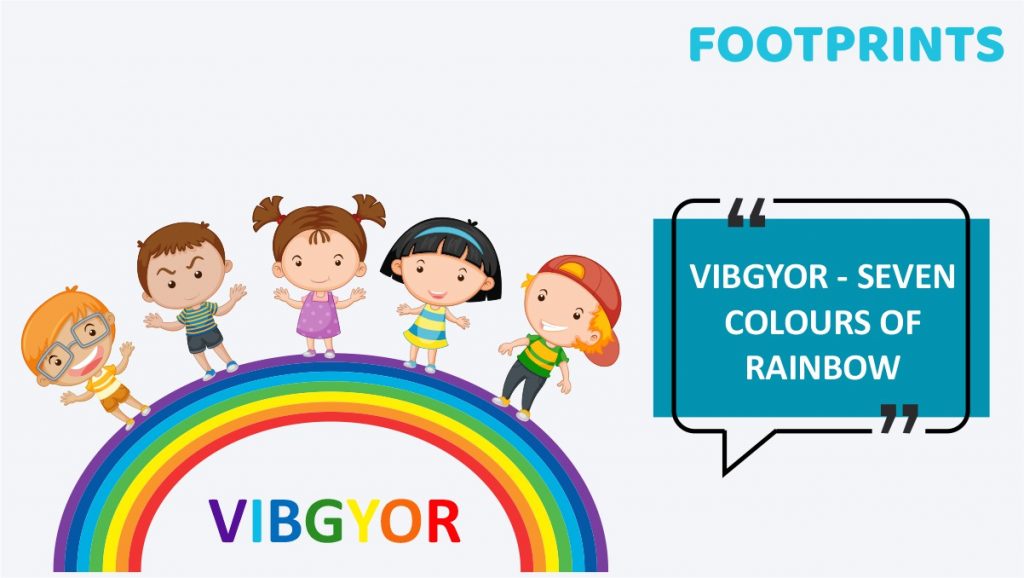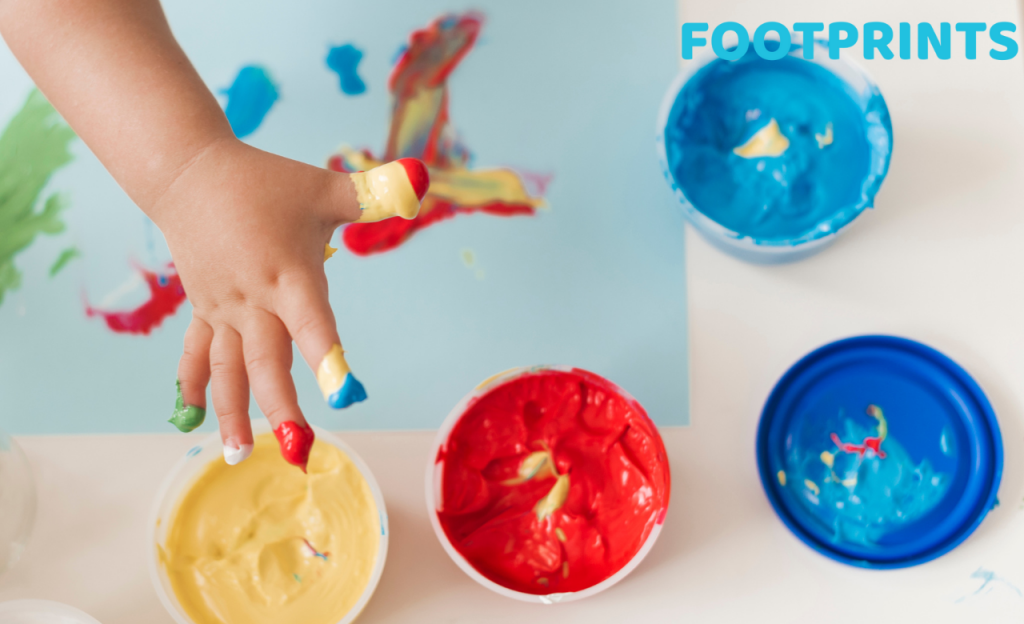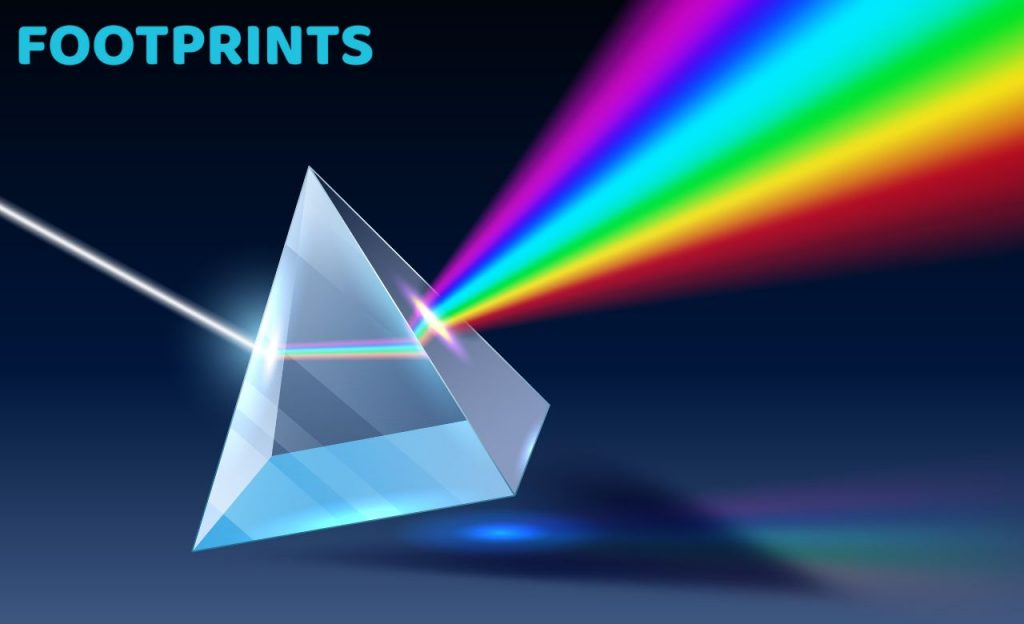

Nature stands as an unparalleled teacher, offering invaluable lessons to preschoolers. The earlier they develop an appreciation for nature, coexisting harmoniously and drawing lessons from it, the more profound their connection as they journey into adulthood. Early exposure to nature also instills a sense of responsibility for its protection.
Various approaches can instill a love for nature in your child – leisurely nature walks, visits to butterfly parks, excursions to nature reserves, and more.
One aspect of nature that captivates children’s imagination is the rainbow. And rightly so! Witnessing the vibrant spectrum of seven colors lighting up the sky appears nothing short of a miracle. Let’s delve into this natural marvel in more detail to spark the child’s curiosity and address any questions about it.
What really is a rainbow?
“My heart leaps up when I behold
A rainbow in the sky:
So, was it when my life began?
So, is it now I am a man?
So be it when I shall grow old,
Or let me die!
The Child is father of the Man;
And I could wish my days to be
Bound each to each by natural piety.”
William Wordsworth beautifully expressed the sentiment of his heart “leaping up” at the sight of a rainbow, a sentiment that resonates with all, especially children.
Curiosity naturally drives children to seek an understanding of how rainbows come into existence. It’s apt to elucidate that a rainbow is a natural occurrence, shaped by the bending of light as it traverses through water droplets. These droplets act as prisms, causing the light to disperse into the splendid spectrum of seven colors. To foster a scientific spirit, sharing the groundbreaking work of the renowned scientist Sir Isaac Newton becomes essential. His discovery that light, when passing through a prism, breaks down into its constituent colors, provided the key to unraveling the mysteries of the enchanting rainbow in the sky.

Seven Colors of the Rainbow
The child will be fascinated to know that the rainbow has seven gorgeous colors. These colors are:
- Violet
- Indigo
- Blue
- Green
- Yellow
- Orange
- Red
An effective method to memorize these colors is through the widely used mnemonic device – VIBGYOR.
Delving deeper into the realm of fascination, children may find it intriguing to learn that each color possesses distinct wavelengths. The arrangement of rainbow colors follows the order of their wavelengths, from the shortest to the longest.
A probable inquiry from the child might be, “Why does the rainbow consist of only seven colors?” The explanation is that the human eye can precisely perceive these seven distinct colors. However, using a spectroscope would reveal a broader spectrum of colors. This discussion could naturally segue into exploring primary and secondary colors. Red, yellow, and blue are the three primary colors capable of producing all other colors through mixing. Engaging in a lively watercolor mixing exercise with these primary colors can be educational and enjoyable. Witnessing the sparkle in the child’s eyes during such activities is priceless.
Speaking of practical, enjoyable exercises, consider undertaking some of the following to demonstrate the formation of a rainbow vividly:
1. A Prism
Try taking a prism and shining a light through it. The child will be fascinated to see the seven component colors of the light—no better way than this to demonstrate how the rainbow forms in nature.

2. A Diamond
You can achieve the rainbow effect using a diamond or crystal instead of a prism.
Even more captivatingly, embark on an authentic rainbow hunt. Select a day when scattered showers bless the surroundings, yet the sun manages to peek through. If fortune smiles upon you, you might glimpse a genuine rainbow.
Engaging in various art and craft activities related to the rainbow can further enhance the learning experience. A few captivating options include:
Rainbow Inspired Art
- Use food coloring to color oats into rainbow colors. Not only will it be a visual pleasure, it will also be a gustatory delight. You could use food coloring to freeze ice in rainbow colors as well.
- Rainbow colored playdough can be another exciting thing to create a rainbow.
- You could also give the child rainbow-colored straws, and child-safe scissors and let the magic take over.
Along with these activities, some popular rainbow songs or rhymes can be a good accompaniment.
And there you have it! Through these engaging activities, you would have accomplished a myriad of objectives. Primarily, you showcase the enchanting magic inherent in nature. Unveiling the multitude of miracles nature conceals, you simultaneously spark their scientific curiosity. The fact that all of this unfolds amid heaps of enjoyment is an additional bonus.
At Footprints Preschool, a renowned nationwide play school chain, our endeavor is to ignite the innate curiosity in children. Our aim is to guide them in learning how to think, not what to think.
Before we end, it will be good to recap some Rainbow facts for children:
1. Rainbows are caused when sunlight passes through water. The light is split into its component colors.
2. The seven colors of the rainbow are easily remembered using VIBGYOR.
3. To spot a rainbow, you need to be standing in a manner that the sun is behind you.
4. Sometimes, you could spot a double rainbow.
5. There are many myths and legends associated with rainbows, one being that there is a pot of gold at the end of a rainbow.
6. Other than rainbows caused by sunlight, we can sometimes also see moonbows and fogbows!
Here’s to raising learners for life!

Amita is an experienced educator with over 30 years of experience. She has an outstanding understanding of child development, having worked with various age groups for prestigious businesses. She has been dedicated to handling Footprints’s Curriculum and Delivery department for the past decade. Amita’s credentials include being one of India’s few HighScope Curriculum certified trainers and volunteering as a course leader for Landmark Education, the world’s largest training firm.

